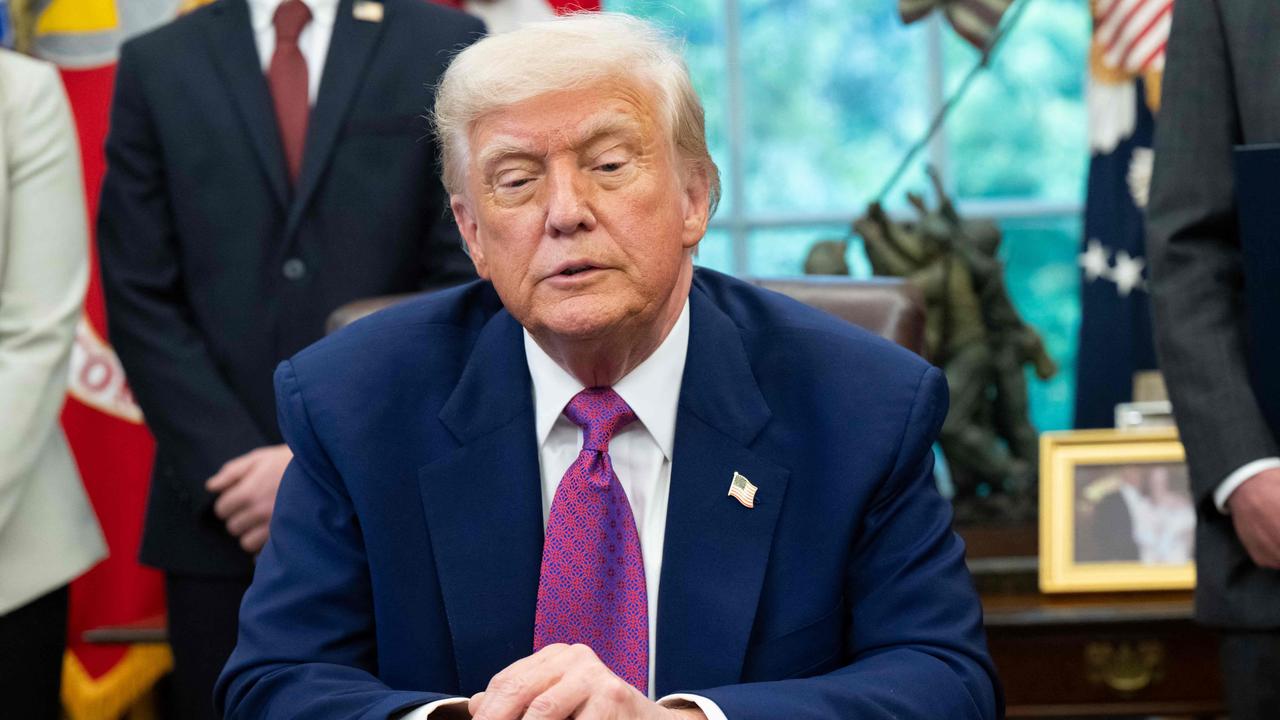Trump v Harvard: Clash of the titans
The stoush between President Donald Trump and the Ivy League institution has put academic freedom in the US on the frontline.
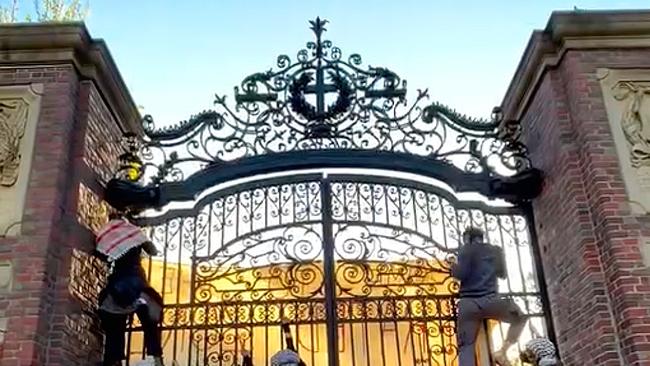
On a warm northern spring day this week, dozens of students relax between classes on the grassy lawns of Harvard University in Cambridge, Massachusetts, but the peaceful scene belies the turmoil that has engulfed America’s oldest and most famous university.
Inside his rarefied office on campus, Ryan Enos is fuming about Donald Trump’s growing war with the Ivy League institution. Enos, an associate professor of government, concedes the university should try to be more ideologically diverse but he says the US President has gone too far in his unprecedented demand to try to reform its liberal progressiveness, which includes cutting off its federal funding.
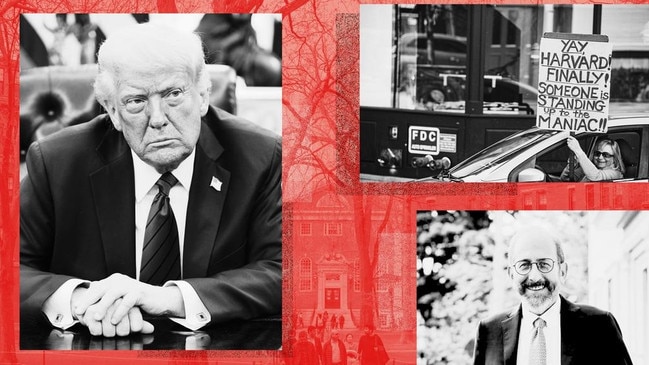
“The university certainly has flaws, and I think that one of its flaws is that it is largely ideologically homogenous,” he tells Inquirer during an interview in his Harvard office.
“There’s a dominant culture of liberalism here that doesn’t reflect the median voter in the United States. And you know, we should be aware of that, and we should think about whether that serves our mission of education or research. Harvard should be more ideologically balanced, but it’s allowed to not be ideologically balanced. That’s part of living in a free country.
“Just like the National Rifle Association can be ideologically imbalanced, just like Quakers can be ideologically imbalanced, just like any other private institution can be ideologically imbalanced. That’s what freedom means.”
Enos says none of Harvard’s failings justifies the sort of government interference Trump is proposing. “I don’t think that should ever be thought of as an excuse to attack an institution,” he says. “Trump operates very clearly as somebody who is an aspiring authoritarian. And so he was going to attack higher education.
“There was no doubt about this. And what he found were convenient pretexts.”
Harvard v Trump has become the heavyweight fight in a broader campaign by American conservatives to tackle what they see as rampant left-wing bias in US higher education institutions.

This has been a long-term cause for Republicans, but Trump has turbocharged it by issuing a range of unprecedented demands the Harvard administration and study body say crosses the line and jeopardises academic freedom.
Harvard, alone among more than 60 American universities targeted by the President, has drawn a line in the sand at Trump’s attempts to mount an ideological war against it. The Trump administration seeks to punish Harvard for its failure to protect Jewish students during campus encampments in 2024 and also is trying to impose government oversight to ensure greater “viewpoint diversity” among staff and students.
Harvard’s defiance of his demands has infuriated Trump, who has frozen $US2.2bn ($3.4bn) in federal funding to the university and claims he will revoke the university’s tax-exempt status unless it bows to his wishes.

Harvard president Alan Garber has warned that Trump’s actions pose an “existential threat”, not only to Harvard but also to all American universities.
Harvard is suing the Trump administration, arguing that it has violated the first amendment to the US constitution and exceeded the law in its behaviour. The success or otherwise of Harvard’s legal action will determine whether Trump succeeds in his quest to “reclaim” America’s elite universities.
“Everyone knows that Harvard has ‘lost its way’,” Trump says. “Harvard has been hiring almost all woke, Radical Left, idiots and ‘birdbrains’ who are only capable of teaching FAILURE to students and so-called ‘future leaders’,” he wrote on his social media platform Truth Social.
Elite universities are a priority target for Trump’s Make America Great Again movement.
US Homeland Security Secretary Kristi Noem has accused Harvard of having an “anti-America, pro-Hamas ideology”; in a 2021 speech JD Vance, now the US Vice-President, argued “the universities are the enemy”.
Influential conservative political activist and Trump supporter Charlie Kirk says: “At a lot of these schools they’re not pursuing what is good, true and beautiful. It has become the oppression Olympics and a weaponised complaint seminar of people sitting in a circle and finding out who’s been offended the most that day.”
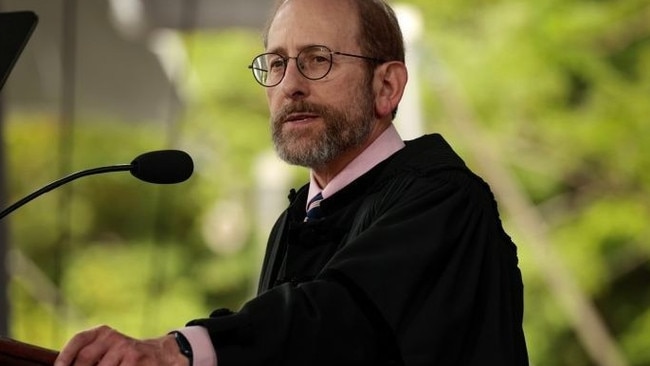
The irony in this fight is that Harvard admits it has a campus culture problem that needs fixing.
“We acknowledge that we have unfinished business,” Garber wrote in a letter after the university filed its lawsuit against the Trump administration in the US District Court in Boston. “We need to ensure that the university lives up to its steps to reaffirm a culture of free inquiry, viewpoint diversity and academic exploration.”
The ugly scenes of anti-Semitism across many US university campuses, but especially at Ivy League schools such as Harvard, in 2024 underlined how an intolerant form of left-wing ideology had taken root across many campuses.
In the immediate wake of the Hamas massacre of 1200 Israelis on October 7, 2023, Harvard student groups released a statement holding Israel responsible. Harvard’s president at the time, Claudine Gay, later caused a furore at congressional hearings in December 2023 when in reply to a question from representative Elise Stefanik asking if “calling for the genocide of Jews” would violate Harvard’s rules, Gay replied that it would depend on their “context”. Gay resigned within the month.
Last week, a Harvard taskforce released a blistering report that detailed how anti-Semitism had infiltrated everything from university coursework and social life to the hiring of faculty members and the world view of many departments.
It gave numerous examples of how Jewish students lived in fear on campus and of how the university failed in its duty to provide protection for Jewish students and to shut down the racist behaviour of many of the anti-Israeli protesters.
“The 2023-24 academic year was disappointing and painful,” Garber wrote in response to the report, commissioned by Harvard. “I am sorry for the moments when we failed to meet the high expectations we rightfully set for our community. Harvard cannot – and will not – abide bigotry.”

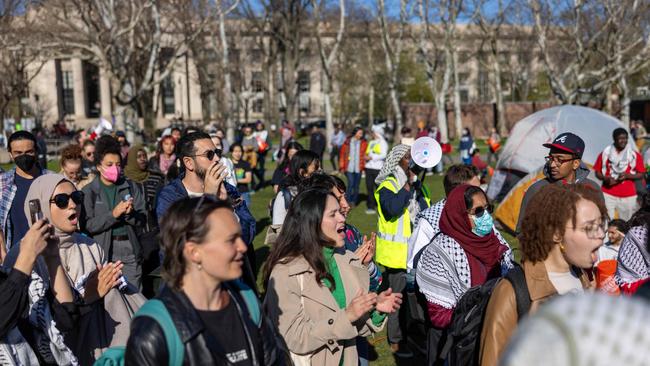
Before its showdown with Trump, Harvard had been moving in recent months to ensure the disgraceful scenes of the 2024 encampment were not repeated. It took steps to improve campus safety, removed two anti-Israel leaders from its Centre for Middle Eastern Studies, banned any form of encampments or obstructive protests on campus and abolished several courses that promoted a hostile view of Israel and Jews. The day after Trump’s inauguration in January, the university adopted a more stringent interpretation of anti-Semitism based on that used by the International Holocaust Remembrance Alliance. This defines certain criticisms of Israel, such as calling its existence racist, as anti-Semitism.
The reforms have been welcomed by many of Harvard’s Jewish students, including a group called Students Against Anti-Semitism that earlier had launched legal action against the university. The group describes Harvard’s reforms as “demonstrating leadership in the fight against anti-Semitism and in upholding the rights of Jewish students”.
But on April 11 the Trump administration ordered Harvard to initiate a far wider series of reforms beyond dealing with anti-Semitism to continue to receive federal funding.
It says government funding “only makes sense if Harvard fosters the kind of environment that produces intellectual creativity and scholarly rigour, both of which are antithetical to ideological capture”. These include hiring and admissions based entirely on merit, ending all preferences based on race, colour, religion or sex.
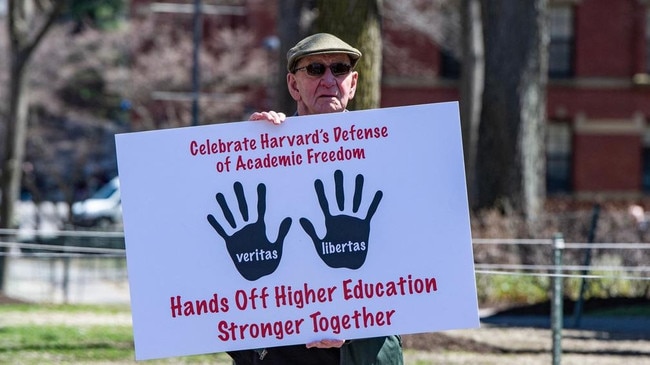
The administration has demanded a full government-monitored audit of the student body, faculty, staff and leadership for “viewpoint diversity” and says each department and teaching unit also needs to be “viewpoint diverse”. It warns if these audits show Harvard is failing to implement sufficient “viewpoint diversity” it will lead to corrective measures, including the deliberate recruiting of “a critical mass” of new faculty and students to correct the imbalance.
The administration’s letter to Harvard – which goes further than Trump’s demands at other universities such as Columbia and Princeton – was a step too far for the institution.
Harvard accuses Trump of overreach by demanding something that not only is impossible to deliver in practice but also injects the heavy hand of government into controlling academic thought and research.
On the anti-Semitism front, it believes it has already implemented the necessary reforms and that Trump is using anti-Semitism as a cudgel to implement wider and unrelated ideological reforms across the university. “The government has cited the university’s response to anti-Semitism as a justification for its unlawful action,” Garber wrote. “As a Jew and as an American, I know very well that there are valid concerns about rising anti-Semitism.”
But he says “the government’s April 11 demands seek to control whom we hire and what we teach”.
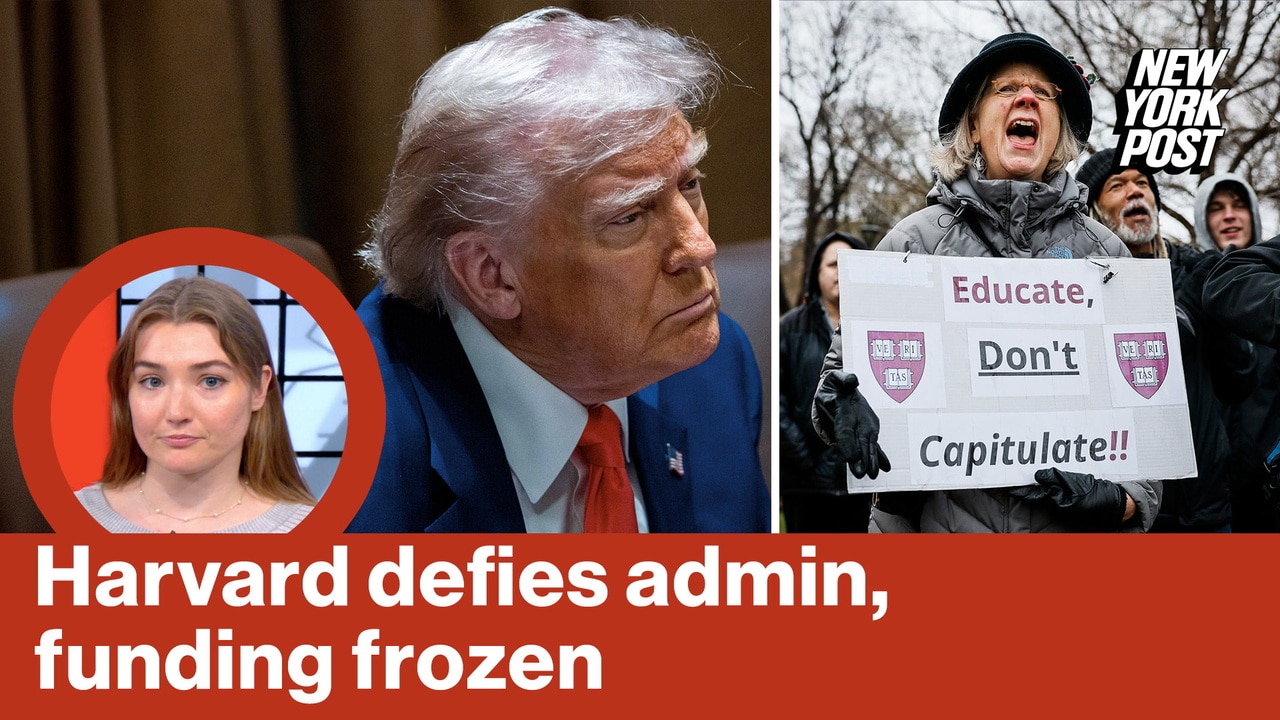
Garber points out that the freeze of $US2.2bn in federal funds will end a wide range of critical medical and scientific research that Harvard conducts on everything from cancer research to infectious diseases outbreaks.
“As opportunities to reduce the risk of multiple sclerosis, Alzheimer’s disease and Parkinson’s disease are on the horizon, the government is slamming on the brakes,” Garber says. “The victims will be future patients and their loved ones.”
Harvard’s lawsuit against the Trump administration states: “The government has not – and cannot – identify any rational connection between anti-Semitism concerns and the medical scientific, technological and other research it has frozen that aims to save American lives, foster American success, preserve American security and maintain America’s position as a global leader in innovation.”
But the critics of Trump’s actions say the cost is far greater than the loss of this medical and scientific research.
They fear that if it is successful, it will set a precedent of direct government interference in higher education across the country.
Even The Wall Street Journal – which is no fan of Harvard’s leftist campus culture – believes Trump has overreached in his demands.
“Few Americans will shed tears for the Cambridge (Harvard) crowd, but there are good reasons to oppose this unprecedented attempt by the government to micromanage a private university,” it editorialised on April 15.
“These reforms may be worth pursuing, but the government has no business requiring them. Its biggest overreach is requiring ‘viewpoint diversity’, which it doesn’t define … An external monitor will decide such questions … Must Harvard ask applicants if they support Mr Trump and impose ideological quotas in hiring and admissions?
“President Trump has enough balls in the air without also trying to run Harvard.”
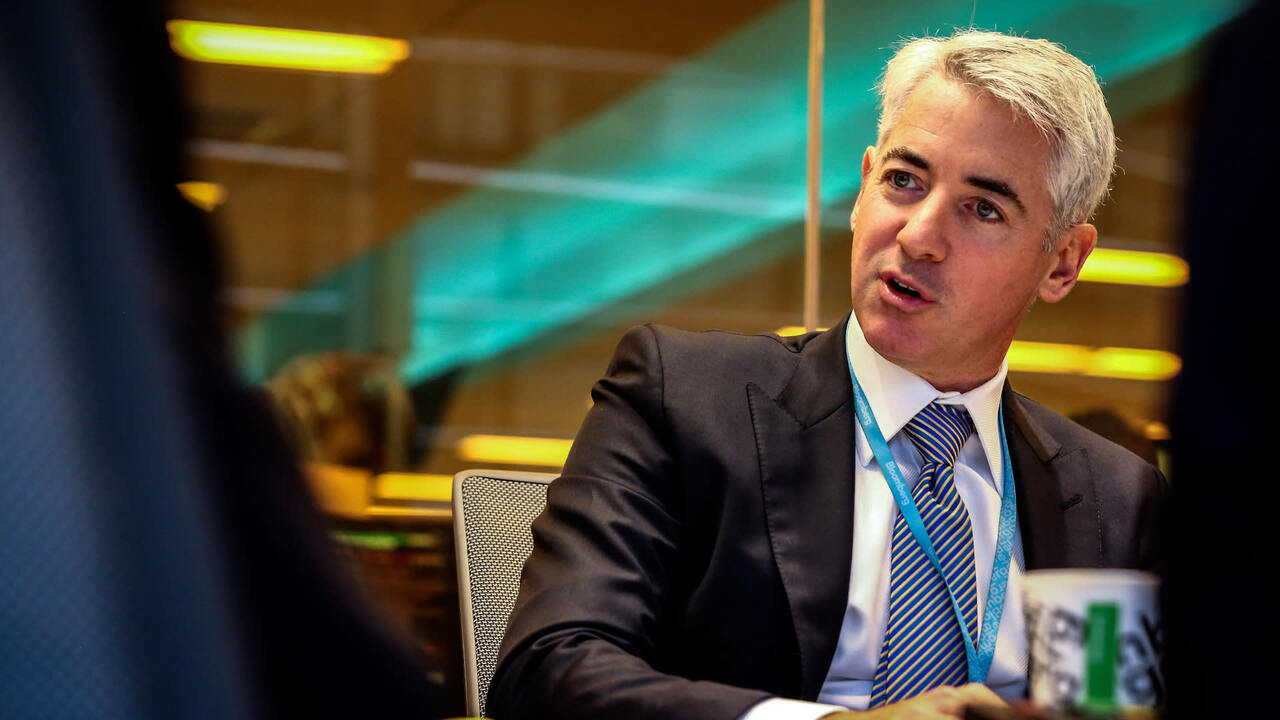
A central problem with Trump’s demands on Harvard is that the concept of “viewpoint diversity” is not explained and is left wide open to interpretation.
Harvard psychologist Steven Pinker, who previously has accused the far left of creating an atmosphere of intellectual intolerance on US college campuses, said this week that viewpoint diversity was “crucial” in “intellectual discourse”. But he said having the government impose it could lead to outcomes that are Orwellian.
“There’s nothing to prevent the party in power from enforcing the teaching of ideas that are both flaky and congenial to the administration: vaccine denial in medicine, 2020 election conspiracies in history, creationism in biology, quack nutritional theories in public health, the benefit of tariffs in economics, and so on,” he said.
James Prashant Fonseka, a student at Harvard Divinity School, which was the scene of some of the most virulent anti-Semitism in 2024, says it was valid to criticise the university for some of the more “extreme progressive views” on campus.
But he says when Harvard knew Trump would be serving a second term, it moved fast to curb some of the excesses on campus as well as cracking down on anti-Semitism.
“I think they saw the firestorm that was coming and they made certain moves to try to inoculate themselves from it,” he tells Inquirer in the divinity school library. He says the Trump administration is determined to punish the university regardless of what reforms it puts in place.
“Now it just feels like revenge,” he says. “It’s like they’ve gone beyond the original concept and they’re just trying to change the way the whole university thinks. It’s like they really want to win.
“But democracy cannot function if we do not have independent institutions.”


His friend and fellow divinity school student Jarrett Hill says: “I don’t believe that there is anything material Harvard could do that would satisfy them. I believe that those in the administration who are going after Harvard are absolutely convinced that they have a righteous cause, and that Harvard, as an institution, represents something that is bad and dark and bad for society, that they need to be targeted and punished for that.”
Perhaps the most telling sign that Trump has overreached in his battle with Harvard is that many of its Jewish students have said they are opposed to his attack on the university.
More than 100 Jewish students at Harvard have signed a letter decrying Trump’s “exploitation” of anti-Semitism to threaten the university’s funding.
“We are compelled to speak out because these actions are being taken in the name of protecting us – Harvard Jewish students – from anti-Semitism,” the students wrote.
Ophir Cohen-Simayof, president of the Jewish Student Association at the Harvard Divinity School, tells Inquirer she is worried Jewish students will become the scapegoat for any backlash against Trump’s actions because they are being carried out ostensibly in the cause of combating anti-Semitism.
“I do think it’s too heavy-handed, what they’ve done,” she tells Inquirer. “I don’t think it’s about anti-Semitism. I think most of it is unrelated. And I do fear that Jews are going to be targeted once again. My fear is that students are going to get angry at their Jewish colleagues, even though their Jewish colleagues have nothing to do with (Trump’s actions).”

Rabbi Jason Rubenstein, executive director of Harvard Hillel, the Jewish community centre at Harvard, tells Inquirer that Trump’s attack on the university might have been less heavy-handed if the university had acted more quickly in 2024 in tackling anti-Semitism on campus.
But he says Harvard is right to oppose the Trump orders. “Trump’s edict had a level of invasiveness that would functionally end the independence of Harvard as an organisation. Harvard could not and should not have acceded to that,” Rubenstein says.
Legal experts believe Harvard stands a good chance of winning its legal case against Trump because they say the President’s orders appear to be a clear breach of the free speech provisions of the first amendment.
The case will be keenly watched by the roughly 60 higher education institutions that have also had their funding reviewed or threatened by the Trump administration. The irony is that Trump’s election win, coupled with the obvious failures of universities in 2024 on anti-Semitism, has already had the effect of forcing many American universities to do more to protect Jewish students and distance themselves more from diversity, equity and inclusion mandates and other progressive causes. So the “Trump effect” was already affecting the university sector.
But by attacking Harvard and the notion of academic freedom with such extreme demands, Trump risks blowing up his own campaign to reform American universities before it begins.






